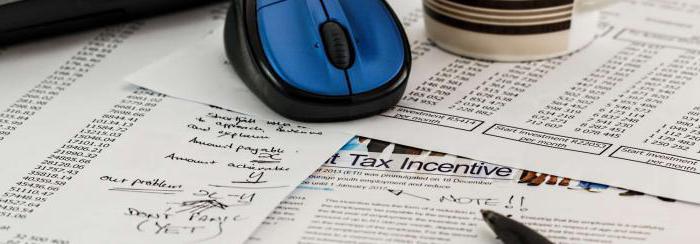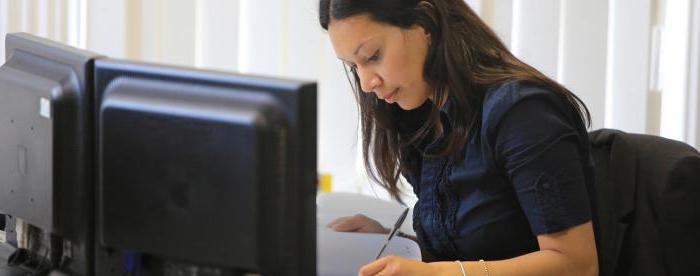Checking the financial and economic activities of the institution is the most reliable and accurate method of confirming the fact that the organization works productively, in accordance with applicable laws, and all its employees work in good faith. It is recommended to organize activities to audit activities regularly, analyzing the full range of factors.
Checks as a way to success
Economic instruments were not invented by chance: all of them, one way or another, are aimed at ensuring that the enterprise develops efficiently, quickly, succeeds and shows good profitability. To achieve these goals, management technologies were invented, but only their introduction in production still does not allow achieving the desired result. For maximum efficiency, it will be necessary to regularly organize checks of the financial and economic activities of the organization.

The best option is to attract third-party, independent auditors. Experts with a high level of qualification, wide experience of work can conduct an audit accurately, clearly, taking into account all important factors, and as a result, provide a report with conclusions and recommendations that allow optimizing the work of the company. Audits of financial and economic activities cover different areas and aspects of management, which gives management a complete picture of what is happening in the company.
Auditor's work: important features
A specialist who checks the plan of financial and economic activity collects information about the processes in the enterprise and evaluates the completeness of the applied methods and accounting forms. The auditor studies how reliable accounting of the company’s activities is conducted, and proposes to the manager a plan of measures that will improve the efficiency of the company. As a rule, the introduction of new techniques requires some effort. The auditor makes recommendations to minimize and optimize them. According to the results of innovations in the foreseeable future, the company will receive higher income amid optimization of production costs.
The benefits of auditing
An audit of financial and economic activities is necessary because any modern business is a complex structure, which includes accounting and taxation. Appeal to the auditor is the best way to get the results of an independent assessment of accounting in the enterprise. In the future, this allows us to clarify the data on whether full accounting is maintained, what disadvantages it has, and what errors are systematically made. Qualified external workers will suggest ways to resolve existing problems.
Checking the financial and economic activities of the enterprise involves a comprehensive study of the corporation, designed to identify:
- financial position;
- company obligations;
- assets and liabilities.
According to the results of audits of financial and economic activities, information is revealed that is used with high efficiency for management decisions in the near future. But this task is very responsible, therefore it is impossible to entrust an audit to anyone. It is recommended to involve external specialists: these are independent entities, ways to evaluate all processes without involving emotional, financial, or other personal interests.The auditor should have a good knowledge of applicable laws and understand the standards, the main requirements applicable in enterprises, as well as mechanisms to optimize the work process.

Key Analysis Activities
As a rule, the procedure for checking financial and economic activities is as follows:
- study of documents;
- analysis of economic data about the enterprise;
- study of constituent, certification, licensing documentation;
- study of personnel documentation, including aspects of responsibilities, instructions, authority;
- expert assessment of the agreements made, analysis of the reliability of securities, compliance with the laws, timeliness;
- the study of the credit component of the balance sheet;
- analysis of the use of enterprise resources.
Methods of audit and verification of financial and economic activities:
- study of documentation;
- interviewing employees;
- conducting tests of personnel and workflow;
- Workflow monitoring
- analysis.
The latter is the application of mathematical tools, formal, logical rules and laws.

Audit task
The audit of the financial and economic activities of a state-owned institution, a budgetary, or a private corporation — in a word, absolutely any business — has as its main goal to study and analyze reporting. Against the background of the information received, it will be possible to draw conclusions regarding which reserves the organization has, so far not involved in work, but acceptable to be involved in the production process.
So, an audit is an event that as a result has an expert opinion demonstrating what the inspectors came to, what they were able to identify and what methods of improving the situation were discovered. Documents generated at the end of the audit are sent to the heads of the organization so that they can make an informed decision about which paths of development of the company will be most effective and efficient.
Event Features
A tax audit carried out by freelance qualified specialists, an audit of financial and economic activities is always individual. This means that managers outline a range of economic, financial, and tax issues. It is on them that the attention of the inspectors is focused.
The more documents the company has, the wider the range of aspects for analysis, the more the field of work and the complexity of the technical task, the longer the audit will take. If cooperation with a third-party organization was chosen, the price of the service will depend on this. In general, engaging the organization’s employees in the audit saves on the event, but the best results are shown by the checks performed by third-party auditors, as these persons are more objective.

Revision: an inside look
As necessary, verification of the financial and economic activities of a budgetary institution is carried out by its own resources. As a rule, they use workers involved in internal control systems. If necessary, you can request assistance from state authorities, authorities responsible for control, as well as independent entities. It is recommended that preference be given to those who already have experience in conducting audits.
As a rule, an audit group is formed at the enterprise from among its own employees or from an invited organization. It will include supervisors, experts, and specialists in several areas. The work is regulated by the terms of reference being drawn up at the very beginning; aspects follow from it, for the sake of identifying which an audit of the financial and economic activity of the enterprise is organized.
Based on the terms of reference, an action plan is drawn up with an indication of the timing and volume of information being worked out. Plans are the basis for creating work schedules. An individual schedule is created for each of the commissions.As a result, by joint efforts they prepare an act of verification of financial and economic activities. In some cases, it will take the form of a report; sometimes it is drawn up as a conclusion. Applications are sure to go to it. How in the future to apply the act of verification of financial and economic activities, decide the Director General, the head of the organization. In particular, the practice of sending such paper to higher authorities is widespread.

Verification, control and trust
Why do we need a check of financial and economic activities? This is not just a method of making sure that a firm is efficient and reliable. It is also a tool to achieve location, investor confidence, management bodies, government agencies. In any commercial organization, an audit helps protect shareholder money and public assets.
The company must organize:
- the presence and adoption of a financial, business plan;
- introduction of internal control;
- providing a transparent management system to prevent abuse of authority;
- measures to prevent and detect risks associated with money, operations;
- accuracy of published data.
The audit of financial and economic activities is aimed at determining the extent to which all of the items listed are implemented in practice. In order for the audit to be correct, it is possible to organize a special committee, and assign control over the audit to the board of directors.
Control system: the path to success
To begin with, it is worth clarifying one fact: no matter how modern, efficient, well-thought-out and progressive the system of control over its expenditures introduced at the enterprise is, it cannot serve as an absolute guarantee of the absence of unforeseen losses. On the other hand, the introduction of such a system reduces the risk of their occurrence.

Creating a system and its implementation in the workflow is a task that a company must solve on its own. At the same time, the system of control over the activity should function every day, regularity is necessary. According to the law, the audit of financial and economic activities falls on the audit commission. For control to be sufficiently effective, well-functioning mechanisms for daily monitoring of the dynamics of events must work within the corporation. Only such total tracking of business operations will completely eliminate the incorrectness of doing business.
Theoretical aspects
Before the company will introduce a system of regular daily monitoring of the company’s activities, it is necessary to establish the definitions of terms associated with the activities of the audit structure with internal documents.
Definition of the concept of "internal control". You can formulate it as follows: control of all types of management, financial operations of the organization, including following the approved plan, in the context of units, departments, bodies existing in the structure of the enterprise. The procedures that make up such control do not interfere with the actual operations, but allow you to find non-standard ones from them and conduct them with high efficiency, without loss. Internal audit of financial and economic activity is also risk management.
Internal control: neglect is unacceptable
Regular audit is the most reliable method of identifying risks and preventing abuse. If it was possible to organize it efficiently and correctly, the company bears lower costs with increased quality of the management system. For maximum efficiency, a special department is created in the structure - a service responsible for audit control.

This is a unit that checks every day. It is important that it is independent of the executive bodies of the company.The charter should contain the rules according to which the employees of the audit department are chosen. The composition, structure, requirements are determined in the local regulatory acts of the organization or other internal documentation. All papers related to the activities of the audit service must be approved by the chief executive officer of the company.
Efficiency and Reliability
The creation of the audit commission allows you to monitor the implementation of the economic, monetary plan of the enterprise. This is tentatively approved by the chief executive of the organization or the board of directors. In the future, this management body will influence the work of the inspection body. So that managers can effectively control the workflow, they create an audit committee. He is only responsible for internal audits at the company. The way the audit committee works is controlled by the CEO either in person or through the audit committee.
It was recommended that the work process be established in such a way that persons, bodies related to economic and financial activities have clearly limited competencies recorded on paper. Some should be responsible for developing internal control measures, others for approval, someone should be responsible for actually applying the plan, others for evaluating the result.
This approach allows you to achieve the effectiveness of the management system in the enterprise. Experts advise assigning responsibilities for the development of control procedures to the audit committee, audit service and executive structures of the company. Only the board of directors (or the general director) can approve projects.
Responsibilities and Practices
The executive structures of the organization should be given the responsibility of the practical application of control measures. Evaluation of effectiveness, development of recommendations for improving the situation in the company should be entrusted to the audit committee. The composition of such appoint, focusing on achieving maximum control over economic financial work.

In order for the control to be established not only effective, but also objective, it is important that the audit committee has independent persons, including managers. If objective reasons do not allow the selection of such a composition, an independent director is elected as the managing committee, and non-executive directors are included in the membership.
Whom do we include?
The charter should mention the qualifications of the members of the audit committee and the audit committee. It is necessary that people have an education in the field of accounting, have an accurate idea of the rules and norms that make financial statements.
The optimal ratio of the commission's employees is as follows: two-thirds of the participants and the leader should be persons with a higher economic and legal education. Without it, there can only be technical workers. The leader should be appointed a person with at least five years of experience in the direction corresponding to the education received.

When selecting participants in the audit committee, special attention is paid to the personal properties and qualities of potential members. None of them should raise doubts about their loyalty to the company, reliability and honesty, hard work and responsibility. It is recommended to choose only those employees whose reputation is impeccable, since the success of the audit directly depends on how all participants work for the interests of the company, and not in favor of personal gain. It is categorically not recommended to admit to participation in such a commission those who have behind them economic crimes, arbitrariness, offenses involving business.
Another aspect that deserves special attention: a possible conflict of interest among members of the audit commission.As soon as there is a suspicion of such a situation, the effectiveness of the check immediately decreases, the reliability of the results decreases. So, if a certain member of the audit commission also occupies a position, consists in the governing body, by virtue of which it will be in his interests to hide something from the general picture of the enterprise, it is necessary to prevent his participation in the work. Based on this, it is worthwhile to exclude from the list of potential auditors those who hold high positions within legal entities competing with the company organizing the audit.
Independence as a guarantee of reliability
When choosing the participants of the audit commission, you need to take only those who cannot be pressed by the executive bodies of the enterprise. Only full independence can guarantee accurate and correct verification results. In the presence of pressure, levers of control of auditors, verification turns into ineffective, especially on non-standard operations.

In order to select independent auditors and guarantee the effectiveness of their work, it is necessary not only to carefully select each participant in the audit, but also to conclude agreements with all selected persons on behalf of the board of directors. The contracts stipulate liability for non-compliance with the principles of reliable verification and the remuneration due to the auditor who has adequately dealt with its duties.
The contracts also specify how often auditors will have to attend meetings devoted to internal audit at the enterprise. It is recommended to organize such events every month. For each regular meeting of the commission will have to prepare recommendations based on information received over time. At the meetings, they not only consider the results of the work carried out during the month, but also analyze how well the plan is being implemented, which operations deserve special attention of the management team, and what official duties are in doubt. The meeting should be chaired by the chairman. If third-party audit firms are involved, their representatives must be present at each event.
To summarize
Checking the financial and economic activities of the enterprise is an indispensable tool for monitoring the effectiveness of the company, identifying reserves and eliminating violations. During the audit, determine what liabilities, company capital, assets and condition in general. The results of the audit are necessary for making managerial decisions, allowing to bring the company to a new level. It is unacceptable to neglect regular inspections, and only independent professionals with a legal, economic education should be involved in them.